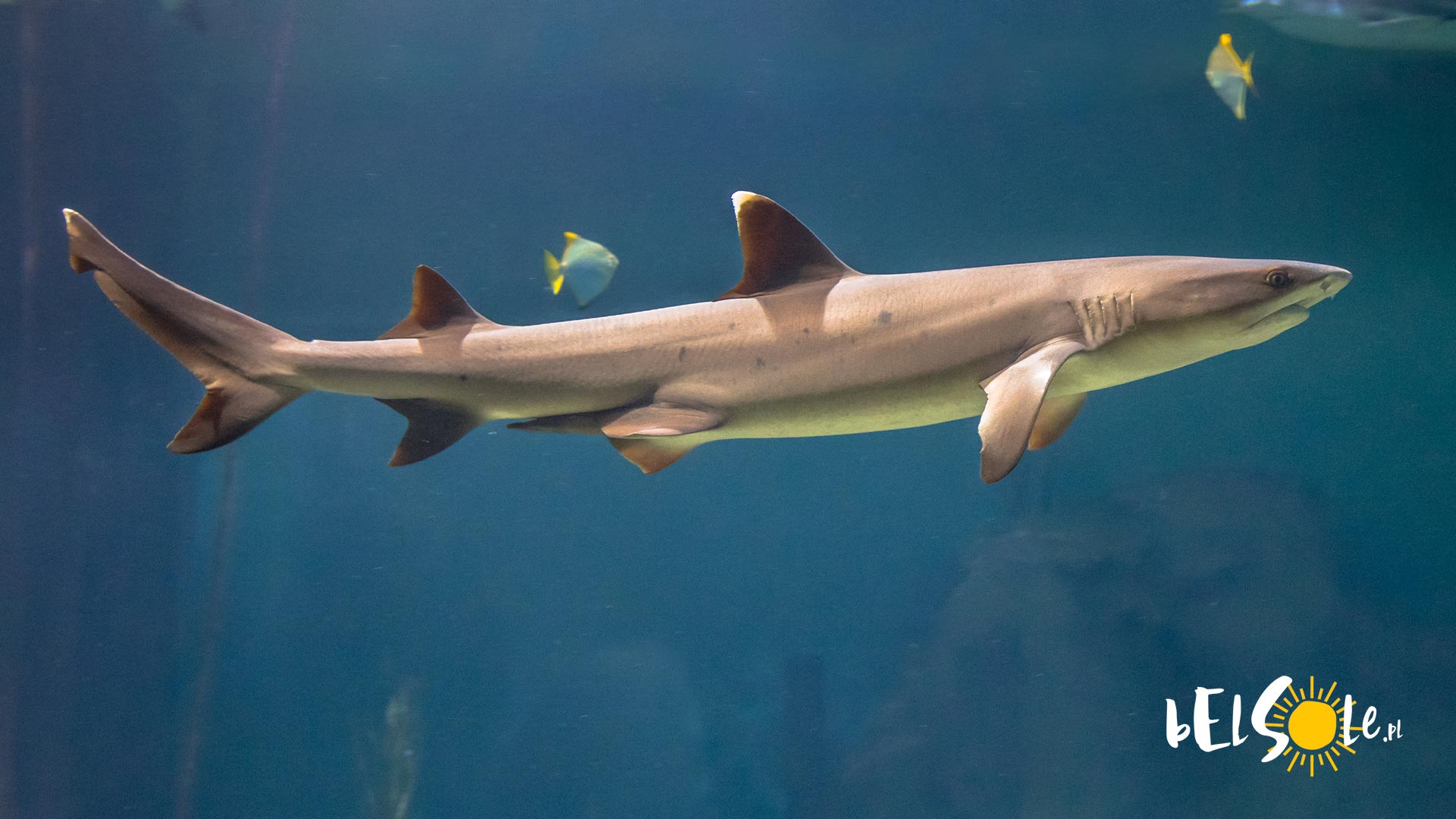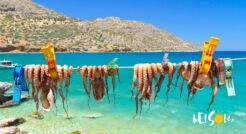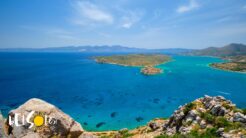Water sports, diving and bathing in warm water are an integral part of holidays in the Greek islands. But can you truly feel safe in Greek waters? Isn’t the Mediterranean Sea full of sharks? Let’s take a look at whether you should be afraid of the waters around Crete.
Are there sharks in Crete?
Experts estimate that there are roughly 47 species of sharks in the Mediterranean Sea and about 20 of them are predatory. This applies to Crete too, so yes, there are sharks in the waters around it. The truth is, however, that the predatory sharks present in those waters tend to stay in the depths and feed on other smaller fish. As much as it may seem unintuitive for us, we’re just not that interesting for the shark and it would have to be an accident to encounter one. Even such species as the massive and glorious whale shark, which looks exactly like us when we get a hold of Greek cuisine, are completely harmless to humans, as they feed exclusively on plankton. Younger whale sharks have even been found to play with divers and fishermen sometimes!
Do sharks attack humans in Crete?
Over the last 180 years, only 15 cases of shark attacks were recorded on humans, not all of them were fatal. Most of them were recorded around Corfu, so quite far away from Crete. In fact, no shark attack has been recorded in Crete, which is, if anything, the exact point that you should keep in mind: just how many people visit Crete every year? Millions. Even if we take into account the 15 cases from all around Greece, that’s still an unbelievably tiny amount of danger that the sharks pose. As annoying of an argument as it can be, consider the amount of deaths from tripping or thunder strikes in comparison.
Though it’s highly natural to be afraid of sharks, especially with how much damage pop culture has done to their image, you really have nothing to worry about. Frankly, it’s the other fish which actually do get close to the coast that you should keep in mind.
What else is hidden in the coastal waters of Crete?
By the shore, you may encounter jellyfish. These can be white, pink or red, about 9 cm long. It may appear defenceless, though it’s not the case at all. You can get properly burned if you touch one of its tentacles. You’ll remember such an encounter for days to come.
Another highly dangerous fish is the greater weever. It buries itself in the sand near shallow waters and hides very potent venom in its spines, sometimes ending up in humans accidentally bumping into one and getting stung. It’s an incredibly painful experience, with very rare instances leading to months of pain. As for remedies, the many fishermen who have been stung by weevers found that applying hot water (about 40 degrees Celsius) and cleaning the wound. Of course, seeing a doctor is a must if the pain stays.
If you want to see sharks, jellyfish and other interesting creatures, then, instead of looking for them in the sea, go to CretAquarium! It’s a public aquarium located near Gournes, a town in Crete, about 10 miles away from Heraklion.
See also:






